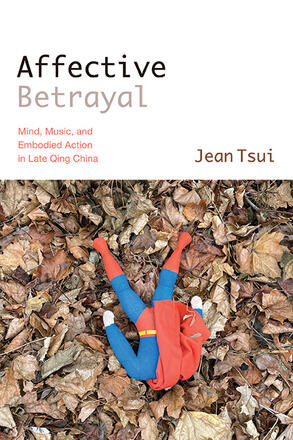
Affective Betrayal
Mind, Music, and Embodied Action in Late Qing China
Seeks to introduce an "affective turn" to the study of China's political modernization process.
Description
Affective Betrayal uses "affect" as an analytical category to explicate the fragility and fragmentation of Chinese political modernity. In so doing, the book uncovers some of the unresolved moral and philosophical obstacles China encountered in the past, as well as the cultural predicament the country faces at present.
At the turn of the twentieth century, China's leading reformer Liang Qichao (1873–1929) presented modern political knowledge in musical and visual representational formats that were designed to stimulate readers' bodily senses. By expanding the reception of textual knowledge from "reading" to "listening" and "visualizing experiences," Liang generated an epistemic shift, and perhaps an all-inclusive internal intellectual, philosophical, and moral transition, alongside China's modern political reform. By tracing the marginalized academic and philosophical positions Liang sought to restore in China's incipient democratic movement, Affective Betrayal examines how his attempts to conjoin Confucian morality and liberal democracy expose hidden anxieties as well as inherent contradictions between these two systems of thought. These conflicts, besides disrupting the stability of China's burgeoning modern political order, explain why the import of modern concepts led to China's continued political impasse, rather than rationality and progress, after the 1911 revolution.
Jean Tsui is Associate Professor of Chinese Literature in the Department of World Languages and Literatures at the College of Staten Island, the City University of New York.
Reviews
"It is high time we had a book-length study on Liang Qichao that truly breaks new ground. Armed with an original conceptual framework as well as an effective analytic apparatus that focuses on the central role of emotion in Liang's political theory, Jean Tsui assiduously tracks the spoor of this towering figure's complex thought throughout the intellectual terrain of the late Qing and early Republic." — On-cho Ng, Penn State University
"This book brings new light to the rich scholarship on Liang Qichao and Chinese political modernity. In its discovery of an 'affective turn' in modern Chinese political philosophy, it offers a non-Western alternative to the ongoing debates on affect and politics in our global situation." — Pu Wang, Brandeis University